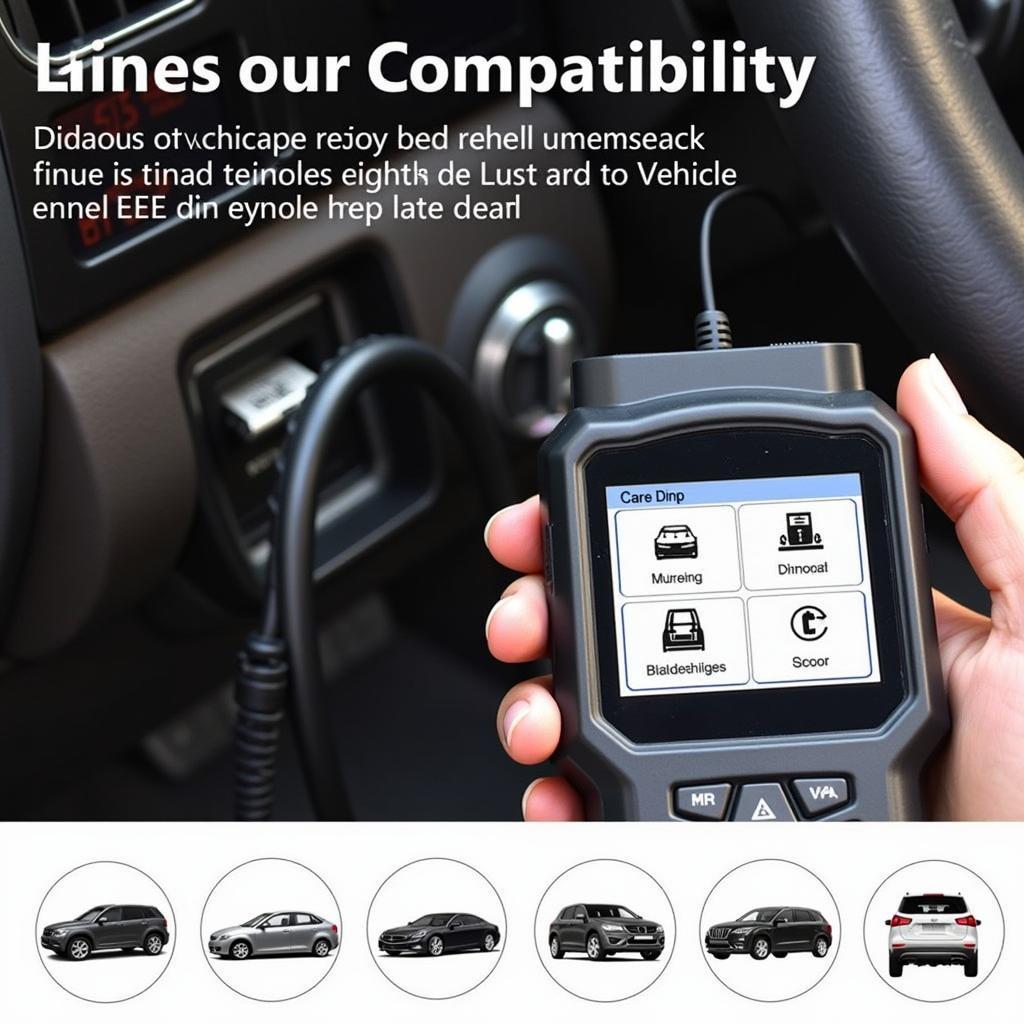Windows Licensing Scan Tools are essential for managing software licenses in a fleet of vehicles, especially those utilizing Windows-based telematics or diagnostic systems. Understanding how these tools work, their benefits, and how to choose the right one can save time, money, and potential legal headaches.
Similar to network scan tools freeware, licensing scan tools can provide valuable insights into your software assets. This article dives into the world of Windows licensing scan tools, providing a comprehensive guide for automotive technicians, shop owners, and vehicle owners alike. We’ll explore the different types of tools available, how to use them effectively, and the benefits they offer.
Understanding the Need for a Windows Licensing Scan Tool
Why is a Windows licensing scan tool crucial in the automotive industry? Modern vehicles increasingly rely on sophisticated software systems, many of which utilize a Windows operating system. Ensuring proper licensing for these systems is not only a legal requirement but also essential for maintaining system stability and security. Without a proper licensing scan tool, managing these licenses can be a complex and time-consuming process, prone to errors and potential compliance issues.
What are the Benefits of Using a Windows Licensing Scan Tool?
A Windows licensing scan tool simplifies the process of tracking and managing software licenses. It provides an automated way to inventory all Windows installations, verify license authenticity, and identify any potential licensing violations. This not only saves time and resources but also ensures compliance with licensing agreements, avoiding costly fines and legal repercussions.
Choosing the Right Windows Licensing Scan Tool
With a variety of Windows licensing scan tools available, selecting the right one can be daunting. Factors to consider include the size of your fleet, the complexity of your software environment, and your budget. Some tools offer basic scanning capabilities, while others provide advanced features like automated reporting and integration with license management systems.
What Features Should I Look For?
Essential features to look for in a Windows licensing scan tool include:
- Comprehensive Scanning: The ability to scan all Windows installations across your network or on individual devices.
- License Verification: Accurate verification of license keys against Microsoft’s database.
- Reporting and Analysis: Detailed reports on license compliance and potential violations.
- Automation: Automated scanning and reporting to save time and resources.
- Integration: Integration with other systems, such as license management platforms.
How to Use a Windows Licensing Scan Tool
Once you’ve chosen a Windows licensing scan tool, the next step is to implement it effectively. This typically involves installing the software on a central server or on individual devices. The tool then scans the network or device for Windows installations and retrieves licensing information.
What are the Steps Involved in a Typical Scan?
A typical scan involves the following steps:
- Installation: Install the licensing scan tool on the designated system.
- Configuration: Configure the tool to scan specific networks or devices.
- Scanning: Initiate the scan and allow the tool to collect licensing information.
- Reporting: Review the generated reports to identify any licensing discrepancies.
- Remediation: Take necessary actions to address any licensing violations.
Best Practices for Windows License Management
Beyond using a Windows licensing scan tool, implementing best practices for license management is essential. This includes establishing clear policies for software installation and usage, maintaining accurate records of licenses, and conducting regular audits.
“Staying on top of your software licenses is critical in today’s interconnected automotive environment,” says John Smith, Senior Automotive Software Engineer at Acme Automotive Solutions. “A proactive approach to license management not only ensures compliance but also helps optimize software spending.”
Conclusion
Windows licensing scan tools are invaluable for managing software licenses in the automotive industry. They streamline the process of tracking licenses, ensuring compliance, and optimizing software spending. By selecting the right tool and implementing best practices, you can avoid potential legal issues and maintain a secure and stable software environment. Contact ScanToolUS at +1 (641) 206-8880 or visit our office at 1615 S Laramie Ave, Cicero, IL 60804, USA for assistance with your automotive software needs.
“Using a reliable Windows licensing scan tool is like having a dedicated auditor for your software assets,” adds Jane Doe, IT Manager at Global Auto Group. “It provides peace of mind knowing that your licensing is in order.”
FAQ
-
What is a Windows licensing scan tool? A Windows licensing scan tool is a software application designed to scan computer systems and networks to identify and track installed Windows operating systems and their associated licenses.
-
Why do I need a Windows licensing scan tool? It helps ensure compliance with Microsoft licensing agreements, avoids potential fines, and provides a clear overview of your software assets.
-
How often should I scan for licenses? Regular scans, at least annually or whenever significant software changes are made, are recommended.
-
What happens if I discover unlicensed software? You should take immediate action to rectify the situation, either by purchasing the necessary licenses or removing the unlicensed software.
-
Can a licensing scan tool help me optimize my software spending? Yes, by providing a clear overview of your software licenses, it can help identify unused licenses or opportunities for consolidation.
-
Are there free Windows licensing scan tools available? Yes, some free tools offer basic scanning capabilities, but they may lack the advanced features of paid versions.
-
How do I choose the right licensing scan tool for my needs? Consider factors like the size of your network, the complexity of your software environment, and your budget when choosing a tool.

